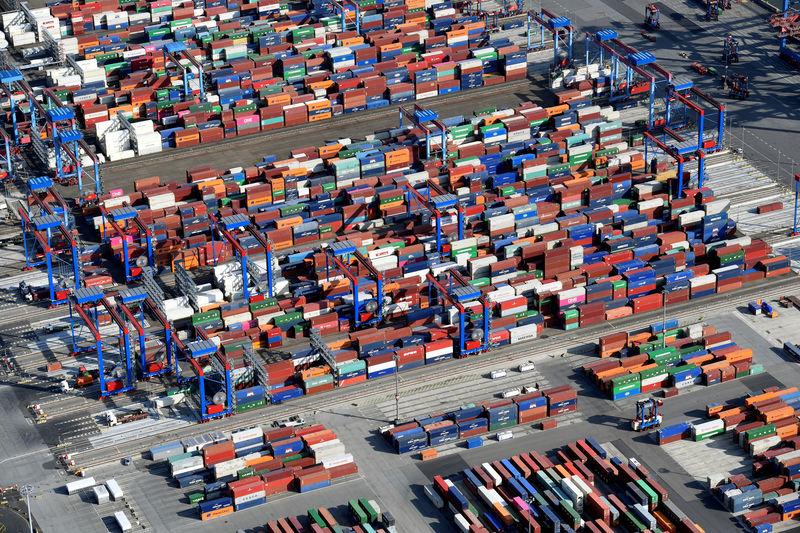BRUSSELS (Reuters) - The euro zone's trade surplus in goods with the rest of the world shrank last year because of higher imports, data from the European Union's statistics office Eurostat showed on Friday.
Eurostat said the unadjusted trade surplus of the 19-country currency bloc amounted to 194.2 billion euros ($219 billion) in 2018, down from 234.9 billion in 2017.
Euro zone imports increased last year by 6.2 percent, while exports rose only 3.7 percent compared to 2017.
In December the euro zone recorded a 17 billion euros trade surplus, down from 24.5 billion in December 2017.
Eurostat did not provide a detailed breakdown of the imports and exports for the euro zone alone, but said the trade deficit in energy of the 28-nation European Union, which includes the euro zone, rose to 298.5 billion euros last year from 234.8 billions in 2017.
The EU's trade deficit with Russia, its main energy supplier, increased last year to 82.8 billion euros from 58.9 billion in 2017.
The EU's overall trade surplus was mostly due to Germany, its largest economy, which alone produced a surplus in its trade with non-EU countries of 176.6 billion euros last year. The figure was however lower than the 184.6-billion-euro surplus recorded in 2017.
Adjusted for seasonal swings, the euro zone had a trade surplus of 15.6 billion euros in December, almost unchanged from 15.8 billions in November, Eurostat said.

($1 = 0.8864 euros)